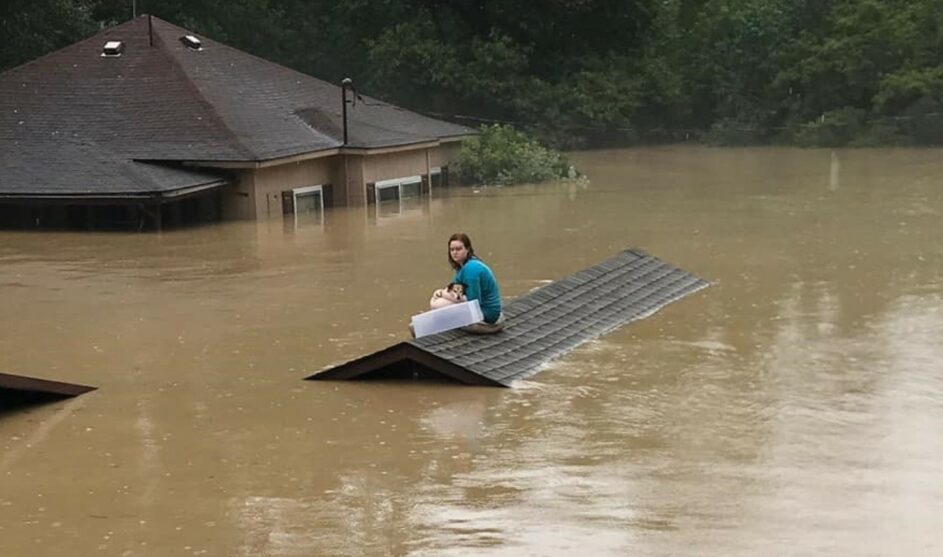By Wednesday morning, the death toll had reached 37 with hundreds still missing. Deadly flash floods had washed through the hollers of Eastern Kentucky, taking with them entire families who hadn’t been able to evacuate fast enough. Volunteers from other parts of the state and the region were pouring in to help.
But one thing that’s missing from the news accounts, by and large, is serious discussion of why this terrible thing is happening in this particular place, maybe because it seems crass to speculate in the face of such catastrophic suffering. But mentioning the fact that these killer floods are happening in coal country is not speculation.
And it’s also not speculation to point out that in recent years, the region, which bears the scars and high rock ledges left by played-out strip mines, has been plagued by a brutal industry’s most brutal practice – mountaintop removal, the last gasp effort of the coal barons to get to the remaining thin seams of coal by blowing the peaks off mountains and shoveling the debris into the valleys below.
And the debris? Coal companies call it “overburden” because they consider it extraneous material blocking their digging machines from clawing out the last remaining veins of coal. It used to be trees and plants and rocks and topsoil – stuff that slows down the water when it storms.
Thinking about this reminded me of a 2008 forum I attended at Webb School. It was called “Peace Jam,” and focused on the effects of mountaintop removal coal mining on the environment. The most interesting segment featured a debate between Knoxville attorney Dawn Coppock, author of the Tennessee Scenic Vistas Act, a bill that sought to ban mountaintop removal coal mining from our state. Representing the other side was Bill Caylor, president of the Kentucky Coal Association, who presented a slick video praising the benefits of mountaintop removal mining.
“We take steep, inaccessible hillsides and leave developable land,” Caylor said, explaining that coal companies pay a landowner “$3,000 an acre for the temporary use of his land, and when we’re done, the landowner is left with level land and wide roads.”
Caylor, who was extremely tall and very overbearing, talked about jobs and tax revenue. He said global warming doesn’t exist. In my notes, I say that he once ate a piece of coal to prove it was harmless.

Dawn Coppock
Coppock, who is maybe 5-2 in heels, shot down his talking points like a sniper, pointing out that Tennessee’s coal mining operations had already dwindled to almost nothing, and that tourism is a far more lucrative industry in Tennessee than coal mining.
“There are only about 327 surface miners in the whole state of Tennessee,” Coppock said. “And we’re not craving flat land. We can site an airport without blowing the top off a mountain. And we are much more tourist-savvy here than in Kentucky. We’re not competing with Kentucky for tourism. People come here to see our pristine mountains.”
She kicked his butt. Sadly, she would not see a similar outcome in Nashville.
Coppock carried her bill to Nashville for about six years. The Senate approved it one year, but it always stalled in the House, despite Bill Dunn signing on as a prime sponsor. Legislators were bumfuzzled by her persistence and kept trying to figure out who was paying her (the answer to that question was Nobody). After years of beating her head against the wall (at her own expense), Coppock recognized where the political winds were blowing (both Houses flipped from Democratic Party control to Republican during those years) and decided to focus on her law practice (she is one of the top adoption lawyers in Tennessee).
Switching back to the here and now, it will be interesting to see if the discussion of flooding in coal country becomes more expansive in the weeks to come. Decision makers need to admit that flooding is a feature, not a bug.
Betty Bean writes a Thursday opinion column for KnoxTNToday.com.

